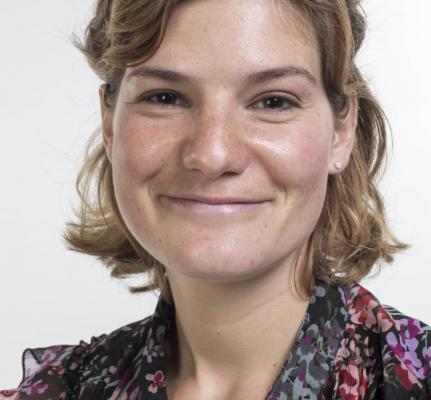Public health nurse
Public health nurses are qualified and registered nurses or midwives who have then chosen to gain experience or undertake training to specialise in areas such as health protection or sexual health.
Working life
Their additional training in public health means that public health nurses play a vital role in promoting and protecting the public’s health. This might be by promoting healthy lifestyles and reducing the likelihood of ill-health, supporting people who have long-term illness, or preventing illness through immunisations or screening interventions. They are employed in a variety of settings including the Office for Health Improvement and Disparities, local authorities and the NHS.
Public health nurse roles
The following list doesn't include all of the roles available for public health nurses, but provides examples of the types of roles available.
Health promotion nurse
Health promotion nurses work with groups in the community and organisations (primary healthcare teams, voluntary and statutory organisations) to identify the health needs of the community and the most appropriate ways of intervening to improve their health. They plan their interventions on a firm evidence-base and then work with their clients in a variety of community settings to meet their needs. Such interventions may include, for example:
- physical activity
- tackling obesity
- promoting self-care for people with long-term conditions
- finding and supporting those most at risk of cardiovascular disease
They also provide information and support to promote and optimise positive health.
The managerial aspects of their role include:
- maintaining good working relationships with partners, colleagues and partner organisations
- completing statistical returns and entering client data onto computer systems
- identifying areas for improving the service
- responding to complaints
Health promotion nurses also have an educational role, helping to support, mentor and train junior staff, participating in clinical supervision, annual staff appraisal, and auditing to ensure maintenance of standards.
Health protection nurse
Health protection teams are responsible for ensuring that the public are protected from infectious diseases and other non-infectious hazards to health. Nurses working in this field have a crucial role to play in this interesting and varied area. They work with individuals, families and the wider population, which may include taking decisions on behalf of a community or population. The health protection nurse works with a wide range of organisations, disciplines and agencies to undertake disease surveillance, contribute to the management of incidents, outbreaks and control strategies, as well as leading or supporting the implementation of new directives, guidance and policy to protect the public’s health.
The day-to-day role of the health protection nurse may include:
- providing reactive health protection advice, as part of an acute response team, to health professionals, the public or wider stakeholders, following the notification of communicable diseases or other health threats.
- undertaking epidemiological investigations and public health risk assessments.
- working with other stakeholders to prevent or minimise the impact of non-infectious environmental hazards
- emergency planning, working with local resilience fora, undertaking community risk assessments and supporting the planning for biological, chemical, radioactive, environmental and nuclear threats to the public’s health.
- public health training, education, and participating in research and audit.
Tuberculosis (TB) nurse
Tuberculosis nurses work in the community or within health protection teams to provide care and support for people being investigated or treated for tuberculosis (TB). They may be involved, with their team, in managing an outbreak. They also visit people at home, ensuring they receive the support that they, as individuals with different needs, require to complete their course of treatment. They provide their clients and other health professionals with information and advice about TB. To help contain the spread of TB, these nurses work to establish who has been in contact with infected clients so they can be traced and offered a check-up and, if necessary, treatment.
Infection control nurse
Infection control nurses establish and maintain effective and efficient systems for the prevention, investigation, control and surveillance of infections in the workplace. Infection control nurses need to provide strong leadership that inspires and motivates others to ensure all infection control policy and procedures are implemented. He or she would normally have the authority, through specialist knowledge, to advise on agreed standards of infection prevention and to control care service delivery to patients, their carers and all hospital staff.
Sarah Murphy
TB nurse specialist (public health)
Read Sarah's storyIt is exciting to work on an innovative project and to see fantastic results so quickly. By offering on-site screening, we’ve greatly increased the number of people who take up the offer of screening.

Pay and benefits
In the NHS, your standard working week will be around 37.5 hours on a shift pattern which can include nights, early starts, evenings, weekends and bank holidays. As an adult nurse, you’ll be paid on the Agenda for Change (AFC) pay system, typically starting at band 5.
You’ll also have access to the generous NHS Pension Scheme and health service discounts, as well as 27 days of annual leave plus bank holidays.
Pay and benefits will differ if working outside of the NHS.
Entry requirements
You must first qualify and register as a nurse or midwife. Entry requirements may then vary depending on the position.
Experience or a qualification (or both) in one of the following areas may be an advantage:
- community nursing
- school nursing
- staff nurse in health visiting team
- work in A&E or walk-in centre settings
- counselling and psychological help
- occupational health
- infection prevention and control
- health protection
- practice nursing
There are other educational options and courses for those working in infectious disease, health protection, infection control, sexual health, drug and alcohol, smoking cessation and other areas.
Skills needed
- excellent communication skills
- project management
- analytical skills
- influencing and negotiating skills
- ability to work across multi-agency or multi-disciplinary professional networks
- good people skills in order to develop and sustain relationships
- problem-solving skill
- an ability to respond to sudden unexpected demands
- an enthusiasm and genuine interest in health protection
Where the role can lead
As a public health nurse there are many opportunities to develop skills to work in a variety of areas. Some public health nurses choose to follow an academic career pathway, working in higher education or research, whereas others may decide to take up senior practitioner or managerial roles.
-
Public Health Nurse
Leeds, LS21 1PY
- Salary :
- £47810.00 to £54710.00
- Type :
- Fixed-Term
- Employer :
- OneMedicalGroup
-
Public Health Nurse
Liverpool, L9 7LH
- Salary :
- £33232.00 to £40211.00
- Type :
- Permanent
- Employer :
- Practice Plus Group
-
Senior Public Health Principal
Morden, SM4 5DX
- Salary :
- £67575.00 to £72399.00
- Type :
- Permanent
- Employer :
- London Borough Of Merton
-
Community Public Health Nurse
Didcot, OX11 8PS
- Salary :
- £31049.00 to £37796.00
- Type :
- Permanent
- Employer :
- Oxford Health NHS Trust
-
Principal Public Health Officer
Carmarthen, Aberaeron or Haverfordwest, SA31 3BB
- Salary :
- £56514.00 to £63623.00
- Type :
- Permanent
- Employer :
- Hywel Dda University Health Board
-
Director of Public Health
Norwich, NR1 2DH
- Salary :
- £113478.00 to £128675.00
- Type :
- Permanent
- Employer :
- Norfolk County Council
-
Health Visitor, Specialist Community Public Health Nurse
Camden, NW1 3TJ
- Salary :
- £46419.00 to £55046.00
- Type :
- Permanent
- Employer :
- Central and North West London NHS Foundation Trust
-
Public Health Nurse Health Visiting/School Nursing
Houghton Regis, LU5 5ES
- Salary :
- £29970.00 to £36483.00
- Type :
- Permanent
- Employer :
- Cambridgeshire Community Services NHS Trust
-
Public Health Lead - 2 Posts
Bootle, L20 3NJ
- Salary :
- £53460.00 to £54495.00
- Type :
- Permanent
- Employer :
- Sefton Council
-
Deputy Director of Public Health
Exeter, EX2 4QD
- Salary :
- £110600.00
- Type :
- Permanent
- Employer :
- Devon County Council
-
Bank Specialist Public Health Dietitian
CTM WIDE, CF37 4AL
- Salary :
- £37898.00 to £45637.00
- Type :
- Bank
- Employer :
- Cwm Taf Morgannwg University Health Board
-
Band 5 Public Health Nurse
Birmingham, B28 8BG
- Salary :
- £31049.00 to £37796.00
- Type :
- Permanent
- Employer :
- Birmingham Community Healthcare NHS FT
-
Student Community Public Health Nurse (SCPHN) Health Visiting
Heywood, Middleton and Rochdale, OL12 0NB
- Salary :
- £31049.00 to £37796.00
- Type :
- Fixed-Term
- Employer :
- Northern Care Alliance NHS Foundation Trust
-
0-19 Specialist Public Health Nurse (Health Visitor)
Leeds, LS12 1JE
- Salary :
- £38682.00 to £46580.00
- Type :
- Permanent
- Employer :
- Leeds Community Healthcare NHS Trust
-
Specialist Community Public Health Nurse- SEND
Multiple sites, LU4 0LA
- Salary :
- £47810.00 to £54710.00
- Type :
- Permanent
- Employer :
- Cambridgeshire Community Services NHS Trust
-
Specialist Community Public Health Nurse (SCPHN) Health Visitor (HV)
Torquay, TQ1 3QH
- Salary :
- £38682.00 to £46580.00
- Type :
- Permanent
- Employer :
- Torbay and South Devon NHS Foundation Trust
-
Community Public Health Nurse - Health Visiting - North East Locality
Ambrosden, Bicester, OX25 2RB
- Salary :
- £31049.00 to £37796.00
- Type :
- Permanent
- Employer :
- Oxford Health NHS Trust
-
Specialist Community Public Health Nurse - School Nursing
Cardigan, SA43 1JX
- Salary :
- £39263.00 to £47280.00
- Type :
- Permanent
- Employer :
- Hywel Dda University Health Board
-
Community Nursery Nurse -Specialist Community Public Health
Marlow, SL7 1DJ
- Salary :
- £27485.00 to £30162.00
- Type :
- Permanent
- Employer :
- Buckinghamshire Healthcare NHS Trust
-
School Nurse - Specialist Community Public Health Nurse
Newport Pagnell, MK16 8EA
- Salary :
- £38682.00 to £46580.00
- Type :
- Permanent
- Employer :
- Central and North West London NHS Foundation Trust
-
School Nurse - Public Health Children's Community Nursing Team
Guernsey, GY4 6UU
- Salary :
- £46152.00 to £62310.00
- Type :
- Permanent
- Employer :
- States of Guernsey
-
Health Visitor
Grimsby, DN31 1HU
- Salary :
- Negotiable
- Type :
- Permanent
- Employer :
- North East Lincolnshire Council
-
Health Visitor
Sandwell, B69 4DE
- Salary :
- £38682.00 to £46580.00
- Type :
- Permanent
- Employer :
- Sandwell and West Birmingham NHS Trust
-
Health Coach
Sheffield, S7 1NF
- Salary :
- £23874.98 to £24671.79
- Type :
- Permanent
- Employer :
- Primary Care Sheffield
-
Health Officer
Winchester , so239dr
- Salary :
- £25700.00 to £32500.00
- Type :
- Permanent
- Employer :
- Energise Me
-
Health Visitor
Highbridge, TA9 5JD
- Salary :
- £30945.00 to £37264.00
- Type :
- Permanent
- Employer :
- Somerset County Council
-
Specialist Health Visitor
Kingswinford, DY8 5ST
- Salary :
- £38682.00 to £46580.00
- Type :
- Permanent
- Employer :
- Black Country Healthcare NHS Foundation Trust
-
Bank Health Visitor
., CF37 4AL
- Salary :
- £37898.00 to £45637.00
- Type :
- Bank
- Employer :
- Cwm Taf Morgannwg University Health Board
Showing 6 of 28 results





